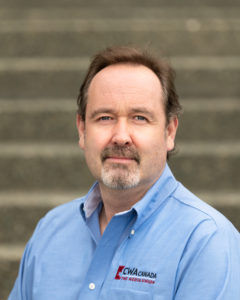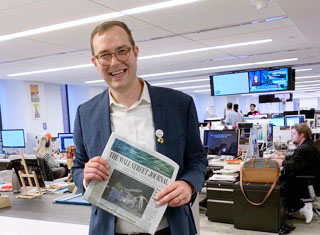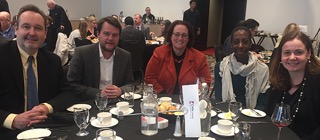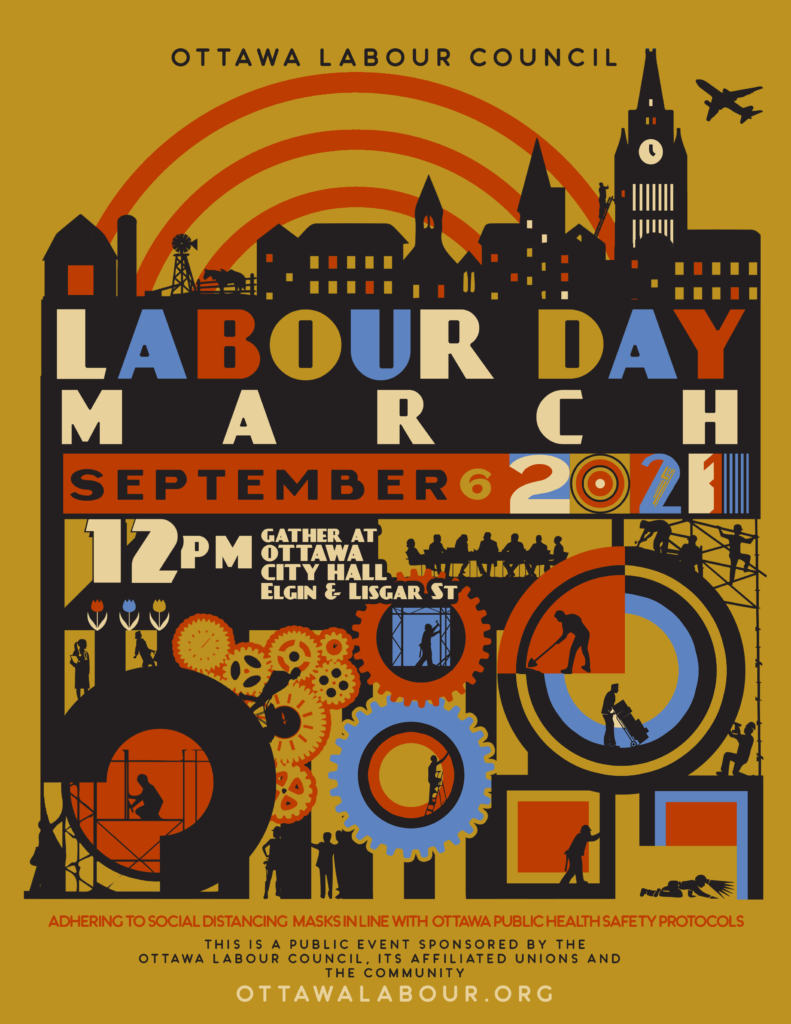Category Archives: CWA
2021 Belcarz-Zeidler scholarships – deadline March 12
$500 Training Education Grant!
Letter to the prime minister’s office
May 27, 2020
The Right Hon. Justin Trudeau
Prime Minister of Canada
Dear Prime Minister,
I am writing on behalf of CWA Canada and the International Federation of Journalists (IFJ) to urge the federal government to make digital companies such as Facebook and Google share advertising revenue with Canadian content providers.
These two companies control over 80 per cent of Canada’s $6-billion online advertising market, yet they pay no taxes and they pay nothing for the content they use. For far too long, they have been earning money by linking to stories from Canadian news companies without compensation. It is simply not fair. They should be paying for copyrighted content.
Even more troubling is the fact that, as these companies have raked in tens of billions of dollars over the years, thousands of Canadian media workers have been laid off and hundreds of Canadian publications have closed. It’s bad for journalism, bad for local communities, and bad for our democracy.
We call on your government to follow the lead of Australia and France, which are set to make digital companies pay for content use.
Such action is all the more vital as many Canadian news companies, which have long struggled with ad revenue declines, are now fighting for their survival amid the COVID-19 pandemic.
We thank you for your government’s support for the news industry during this pandemic, and for the coming tax measures under the journalism support package, but we need to solve the ad revenue problem for the long-term health of the industry.
CWA Canada is the country’s only all-media union, representing about 6,000 workers in print, digital and broadcasting operations, including the CBC, The Canadian Press, and newspapers coast to coast.
The IFJ is the world’s largest organization of journalists, representing 600,000 media professionals from 187 trade unions and associations in more than 140 countries.
Sincerely,
Martin O’Hanlon
President, CWA Canada
The Media Union
World Press Freedom Day Message from CWA Canada President Martin O’Hanlon
May 3, 2020
 We mark World Press Freedom Day this year in the most unusual of circumstances: a worldwide pandemic has killed hundreds of thousands of people, crippled economies, and challenged democracies.
We mark World Press Freedom Day this year in the most unusual of circumstances: a worldwide pandemic has killed hundreds of thousands of people, crippled economies, and challenged democracies.
We must start by mourning the media workers who have lost their lives due to COVID-19 and paying tribute to those who continue to provide vital news and information in this time of pandemic, many risking their own health to do so.
Now, more than ever, it is critical that people get reliable news about what’s really happening and how best to get through this crisis.
At CWA Canada, we have been working relentlessly to ensure employers protect the health of workers, and to defend our collective agreements so that our members have some financial security, especially those who have been temporarily laid off or had their hours cut.
At the same time, we recognize that employers are struggling to deal with plunging revenues and we have urged the federal government to do even more to provide relief. We also pushed successfully for federal aid for freelancers, temps, contract and other precarious workers.
The current crisis has only exacerbated an already troubling situation with freedom of expression under serious threat around the globe.
In a day and age when billions of people get their news from social media, it is vital that journalists and trusted news sources are protected and promoted.
There are five main ways in which governments and others attack freedom of the press: violence and intimidation, blocking internet access and communication, internet surveillance, legislation limiting free speech, and online harassment.
So what can we do about it?
We can launch public pressure campaigns. Such campaigns can yield great results. We must publicly call out governments and bad actors to embarrass them into behaving better. We need to rally the public to hold government to account and that requires educating people.
We can use social media against itself. We can use social media to educate and rally the public and expand the civic space by sharing information about fake news, disinformation, and hate, while promoting trusted, reliable news sources.
We can impose sanctions against bad actors. It is vital that progressive, responsible governments speak out publicly whenever freedom of expression is under attack, that they pressure offenders diplomatically to do better, and punish the worst offenders through economic sanctions if necessary. And those sanctions should be on specific officials, not just governments. Block key politicians and officials from travelling abroad and seize their foreign assets and see how quickly things change.
We will continue the fight for press freedom in 2020. It’s a fight we can’t afford to lose.
As journalism goes, so goes democracy.
CWA Canada Social Media Guidelines
Challenger Schleuss wins re-run election for president of NewsGuild

Jon Schleuss was elected President of The NewsGuild-CWA on Tuesday, defeating 12-year incumbent Bernie Lunzer.
Challenger Jon Schleuss has won The NewsGuild-CWA election, unseating incumbent Bernie Lunzer to claim the presidency.
The unofficial tally Tuesday showed Schleuss, a Los Angeles Times graphics and data journalist, with 1,979 (56.7%) votes and 1,514 (43.3%) for Lunzer.
Schleuss, whose four-year term begins immediately, ran on a platform to reform and modernize the 87-year-old union.
“We now have a stirring of wind at our backs, and we must build on our accomplishments,” he said in a news release. “It won’t always be easy, but our mission is to continue to grow the Guild and fight to preserve the future of journalism.”
Lunzer led the Guild through its greatest period of growth in decades, organizing 60 workplaces and 3,000 workers in the last four years.
The international referendum, in which all CWA Canada members were eligible to vote, was an unprecedented re-run of the spring contest. The union’s election committee determined that over 1,000 members had been effectively disenfranchised when mail-in ballots were sent to out-of-date addresses, mostly at the Canadian Media Guild (CWA Canada Local 30213). Locals are responsible for maintaining up-to-date member addresses.
The independent American Arbitration Association, which was contracted to conduct the election, reported that almost 3,600 ballots had been received by the Dec. 9 deadline. Each Local could choose whether to conduct in-person voting between Nov. 12 and 17 or arrange for members to receive mail-in ballots.
With more than 20,000 members, including 6,000 at CWA Canada Locals, TNG is the largest journalists union in North America. It is a sector of the Communications Workers of America (CWA) and is affiliated with, but has no involvement in governance of the autonomous Canadian union.
The two candidates were nominated at TNG’s 80th Sector Conference held in Florida at the end of January. Attending as a guest, Schleuss became a TNG member in good standing immediately prior to the start of the conference.
Schleuss, 32, was a key player in the successful 2017 campaign to organize editorial employees at the famously anti-union Los Angeles Times, where he has worked since 2013.
The 62-year-old Lunzer — who worked at the St. Paul Pioneer Press for 10 years, then as administrative officer of the Minnesota Guild from 1989 to 1995, when he became TNG’s secretary-treasurer — has been president since 2008.
World Press Freedom Day Message from CWA Canada President Martin O’Hanlon

From left: CWA Canada President Martin O’Hanlon joined members Mike Blanchfield (Canadian Press), Nathalie Bastien (CBC), Angie Bonenfant (CBC), and Kristy Kirkup (CP), at a luncheon held by the Canadian Committee for World Press Freedom at the National Arts Centre in Ottawa.
On this day, we commit to continuing the fight to protect freedom of the press in the face of a growing threat around the globe.
We’ve long watched countries such as Saudi Arabia, China, Iran and Cuba strictly limit what journalists can report. But in recent years, we’ve seen the rise of demagogues and ultra-conservative parties in formerly progressive countries like Poland, Hungary, Turkey and the Philippines, who are openly hostile to the media. And then there’s the U.S., where the ugliness of Trump and his Republican enablers is a troubling threat.
Journalism is a pillar of democracy and attacks on the media are attacks on our democratic systems.
It is vital that progressive, moderate, responsible countries like Canada speak out publicly whenever freedom of the press is under attack, that we pressure other countries diplomatically to do better, and that we punish the worst offenders, through economic sanctions if necessary.
Restricting journalists’ rights is one thing, but in many countries, the situation is even more dire.
At least 94 media workers were killed in 2018, according to the International Federation of Journalists (IFJ), and nine out of 10 cases remain unpunished. Impunity reigns. Hundreds of journalists are imprisoned and, on a daily basis, media workers are attacked, beaten, detained, harassed, and threatened.
There are growing threats to digital safety with cyber-attacks, hacking and online harassment – especially of women journalists – all creating a safety crisis for news professionals.
Back in the fall, I spoke to a Senate committee on behalf of the IFJ about the growing threat to press freedom around the world and the need for a safety convention. We are working with the IFJ in pushing for an international Convention on the Safety of Journalists and Media Professionals, which we have asked the Canadian government to support.
Even in Canada, we must stay vigilant.
Last year, we saw Radio-Canada reporter Antoine Trépanier arrested by Gatineau police simply for doing his job and asking questions – based on a frivolous harassment complaint by someone who didn’t like what he was reporting. The case was dropped, but it should never have happened.
Also last year, a judge ordered Radio-Canada journalist Marie-Maude Denis to reveal her source in a corruption trial, a case that is now going to the Supreme Court.
And of course, the Supreme Court ruled last fall that VICE Media reporter Ben Makuch must hand over material he gathered about an accused ISIS fighter. CWA Canada was an intervener in that case.
Let’s be clear: The media is not — nor should it ever be — an arm of the state. As journalists, we must fight any attempt by anyone, especially authorities, to interfere with freedom of the press.
We will continue the fight for press freedom. It’s a fight we can’t afford to lose. As journalism goes, so goes democracy.
